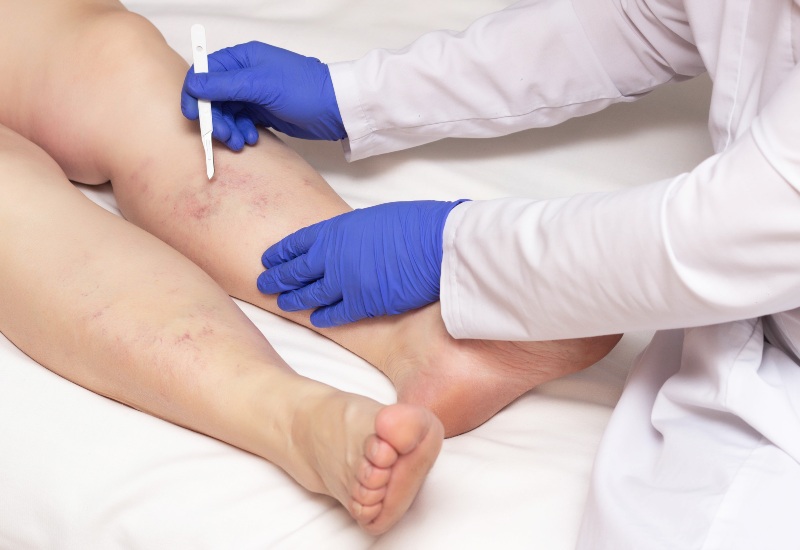Identifying the Signs: When to See a Vascular Surgeon

Indicators for Consulting a Vascular Surgeon
Vascular issues can be difficult to identify. Anything concerning the blood vessels and the health of the veins is considered a vascular issue. Some vascular issues can be minor, but some can be quite serious. It may be time to educate yourself about vascular issues, surgery, and treatments of vascular issues. Early detection of vascular issues is essential, as it can prevent the onset of other issues. Outcomes have been shown to be vastly improved by simply identifying the issue and treating the issue with a vascular surgeon. Vascular surgeons specialize in treating diseases of the arteries and veins.
What Is Vascular Surgery?
What exactly does vascular surgery entail? Vascular surgery may be performed if there are issues or problems with the vascular system. Anything out of the ordinary concerning the blood vessels, veins, and arteries may require attention.
Types of Vascular Surgery?
There are several types of vascular surgery. The surgery will depend on what types of problems are occurring with the vascular system. Some vascular surgeries may include:
Carotid Endarterectomy
This is a procedure in which plaque is removed from the carotid artery, restoring blood flow to the brain. It reduces the risk of stroke in patients who have a buildup of plaque in the carotid artery.
Angioplasty and Stenting
Two of the most common types of endovascular procedures involve a surgeon using balloons and guide wires to open the arteries and restore blood flow, and a stent is placed to maintain arterial flow.
EVAR (Endovascular Aneurysm Repair)
Repairing an aneurysm by placing a stent graft, this procedure prevents rupture and maintains the arterial wall.
Varicose Vein Surgery
Varicose veins occur when there are veins in the leg that are twisted or swollen. Some causes may be stress to the body or stress to the leg itself. Several procedures can be used to treat varicose veins:
- Vein Stripping
In this procedure, the vein is removed surgically from the leg. - Sclerotherapy
This procedure offers a less invasive way to treat varicose veins. A chemical solution is injected into the affected vein, causing it to retract and fade gradually. - Radiofrequency Ablation
This technique uses heat therapy to shrink and close varicose veins.
Dialysis Access Surgery and Vascular Access for Chemotherapy
These two procedures involve placing a port or access site to treat kidney disease or oncological issues.
Thoracic Outlet Surgery
This procedure relieves the pressure on the blood vessels between the collarbone and the rib cage. It is used to treat thoracic outlet syndrome.
Open Aortic Surgery
This refers to any issues concerning the aorta that are treated. A vascular surgeon prevents ruptures and ensures the restoration of blood flow.
Embolectomy
This procedure involves removing a blood clot that has begun in another location and traveled to the blood vessel. If not treated, this issue can damage tissue, including the heart.
When to Consult Your Vascular Surgeon
A vascular surgeon will likely be a referral visit if your primary care physician believes there is an issue. However, there are specific signs to look for when it comes to vascular health problems. No doctor can know your body as well as you do, so it’s essential to keep an eye out for these signs. Many of the red flags concerning vascular health are severe, but some are more subtle. How do you know for sure that it’s time to consult with a vascular surgeon?
Signs that You Need to See a Doctor About Vascular Surgery
A few of the signs that you need to see a vascular specialist include:
Venous Ulcers
Wounds that are slow to heal on the legs or feet could be a sign of venous ulcers, which need to be treated.
Swelling, Pain, or Discoloration in the Legs
Swelling and pain in the legs could be signs of venous disorders. If you experience ongoing swelling or pain, consult a vascular specialist.
Varicose Veins
The appearance of varicose veins can be alarming and cause concern. They are painful and unsightly, and they may be a reason to consult a vascular surgeon.
Leg Pain While Walking
This could be a sign of PAD or peripheral artery disease. Consult a vascular surgeon if problems persist.
Preventing Vascular Surgery
We want to avoid vascular surgery. What are some steps to take to prevent vascular issues that will require surgery?
- Maintain a Healthy Diet
A diet rich in fruits and vegetables and low in salt can help prevent vascular issues. - Exercise Regularly
Making sure to get enough exercise can help to sustain cardiovascular health and prevent vascular issues. - Note Red Flags
Be aware of issues before they start. Note the warning signs of vascular health disorders.
Conclusion
Preventing vascular surgery is essential, but when you need vascular care, it is crucial to find the most qualified vascular surgeon. Finding an established vascular surgeon through your primary care physician or other health specialist is a great way to find vascular care. When in doubt, look to the experts at California Vein and Vascular Centers.
California Vein and Vascular Centers
When it’s time to seek vascular care, turn to the experts at California Vein and Vascular Centers. Providing treatment for leg swelling, varicose veins, and all other peripheral arterial and venous diseases, we are the most qualified specialists in the Bay Area. Ranked first in California for vascular procedures and in the top five in the nation for the number of vein procedures we perform, our board-certified surgeons will show the utmost care in treating vascular disorders. Please schedule an appointment today or visit our website to discover the numerous services we offer.
